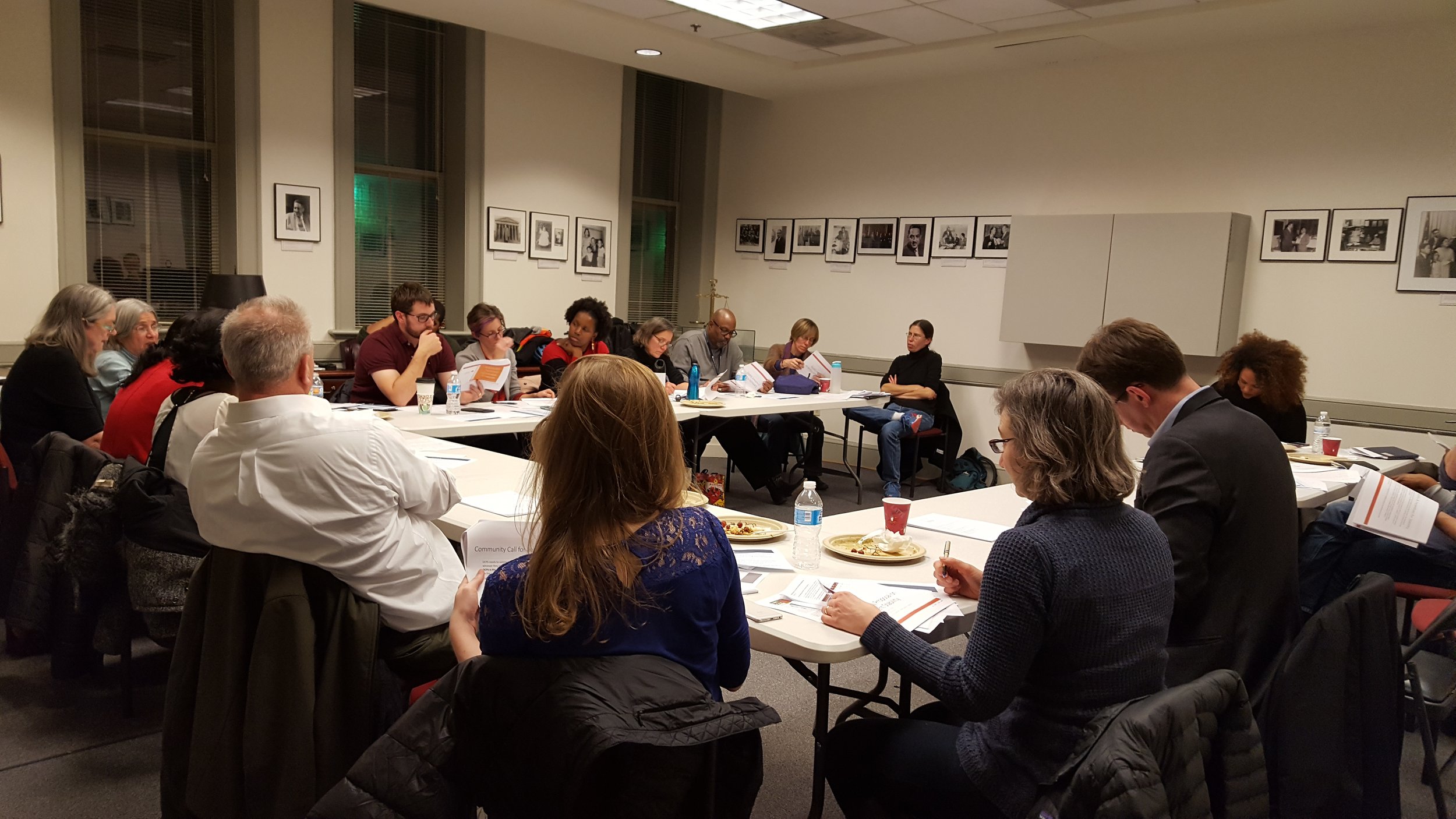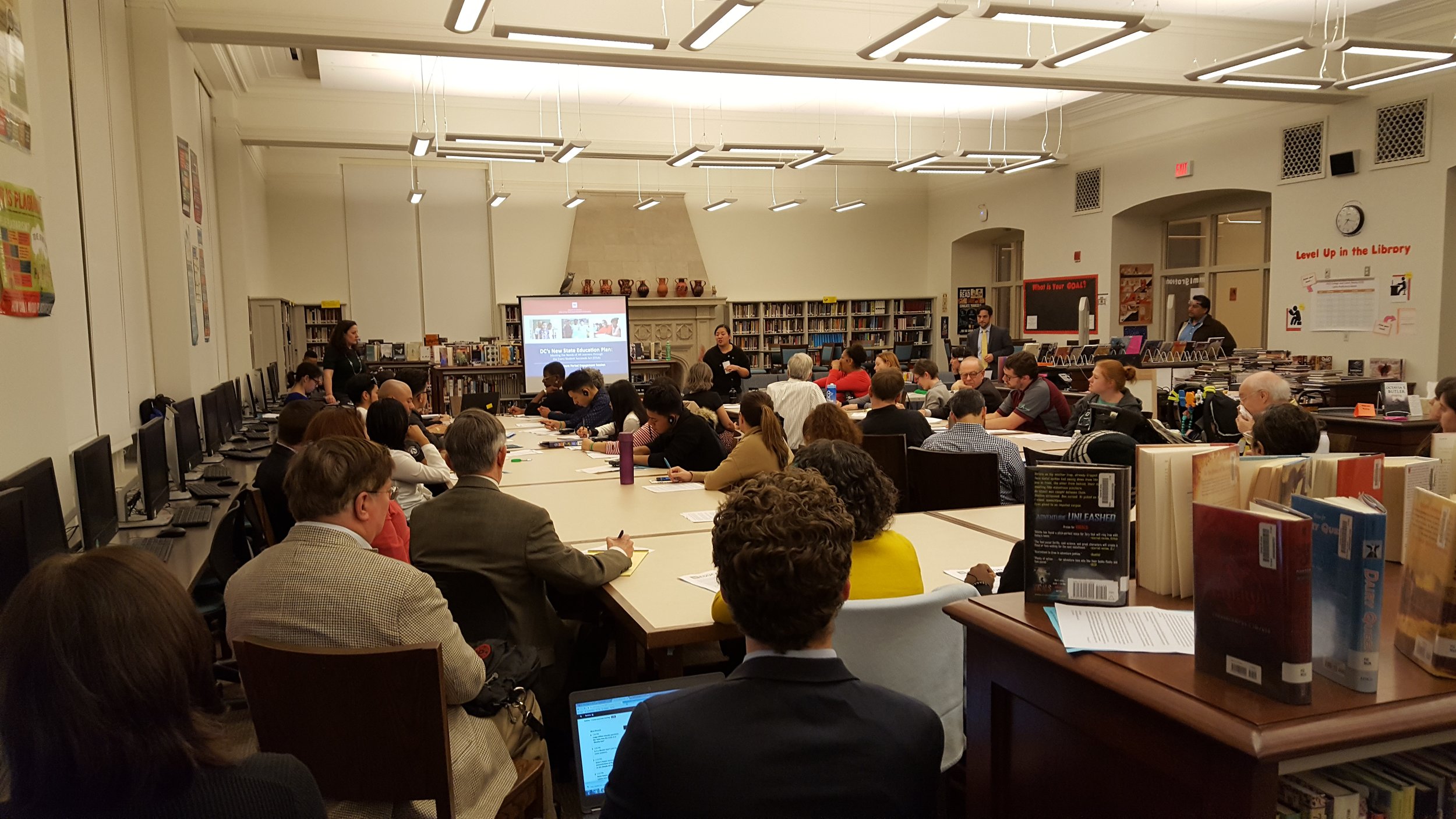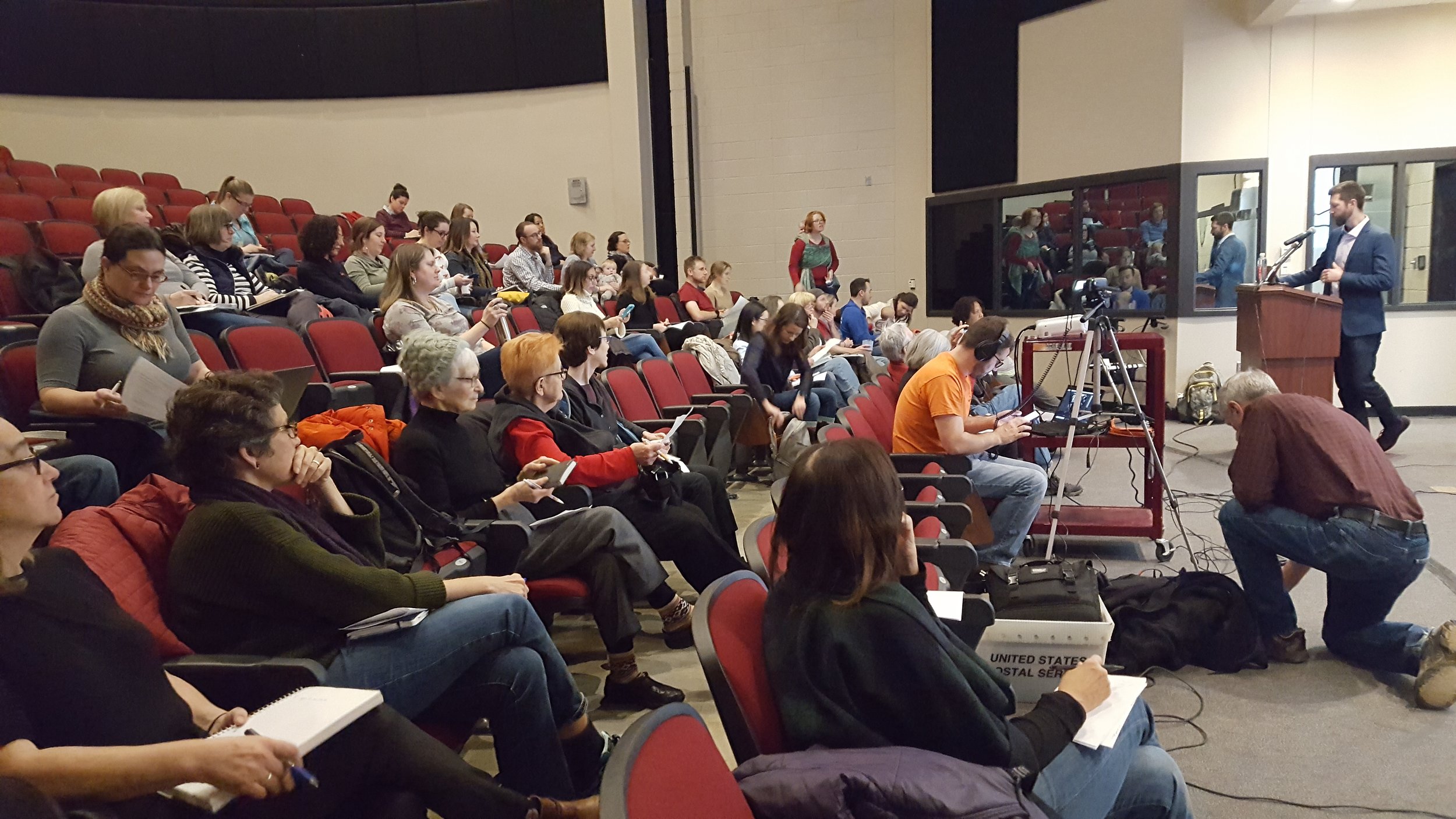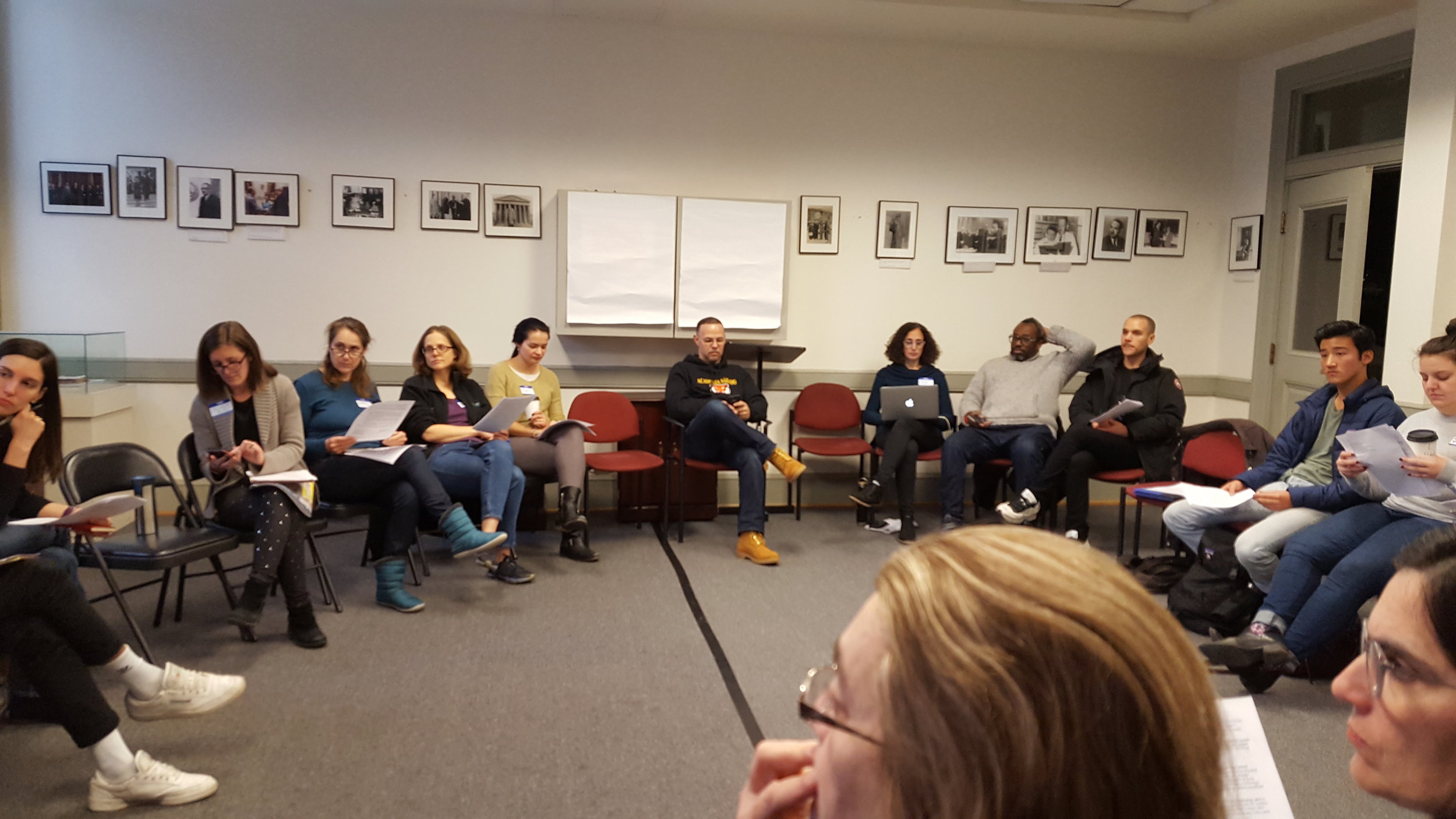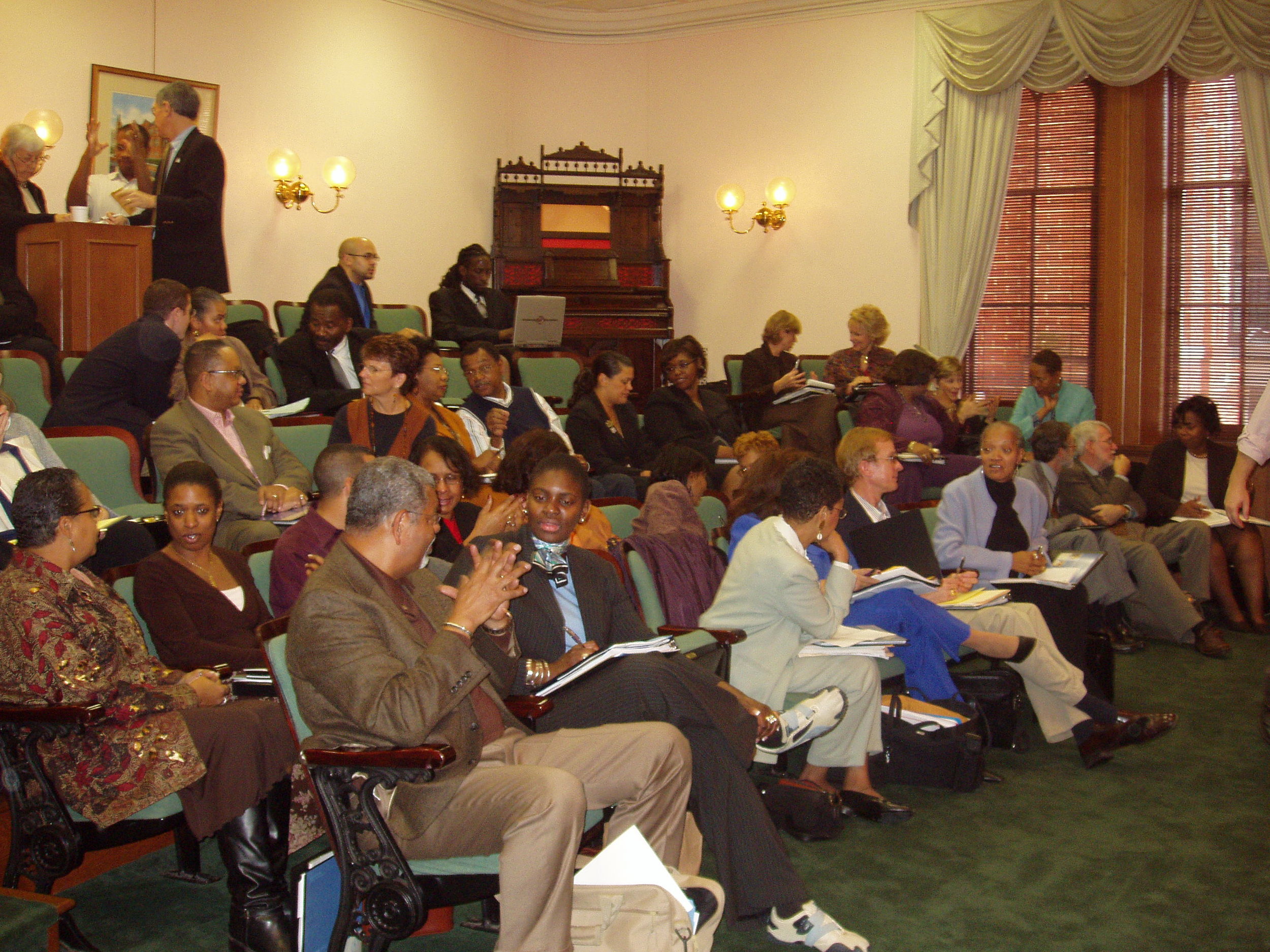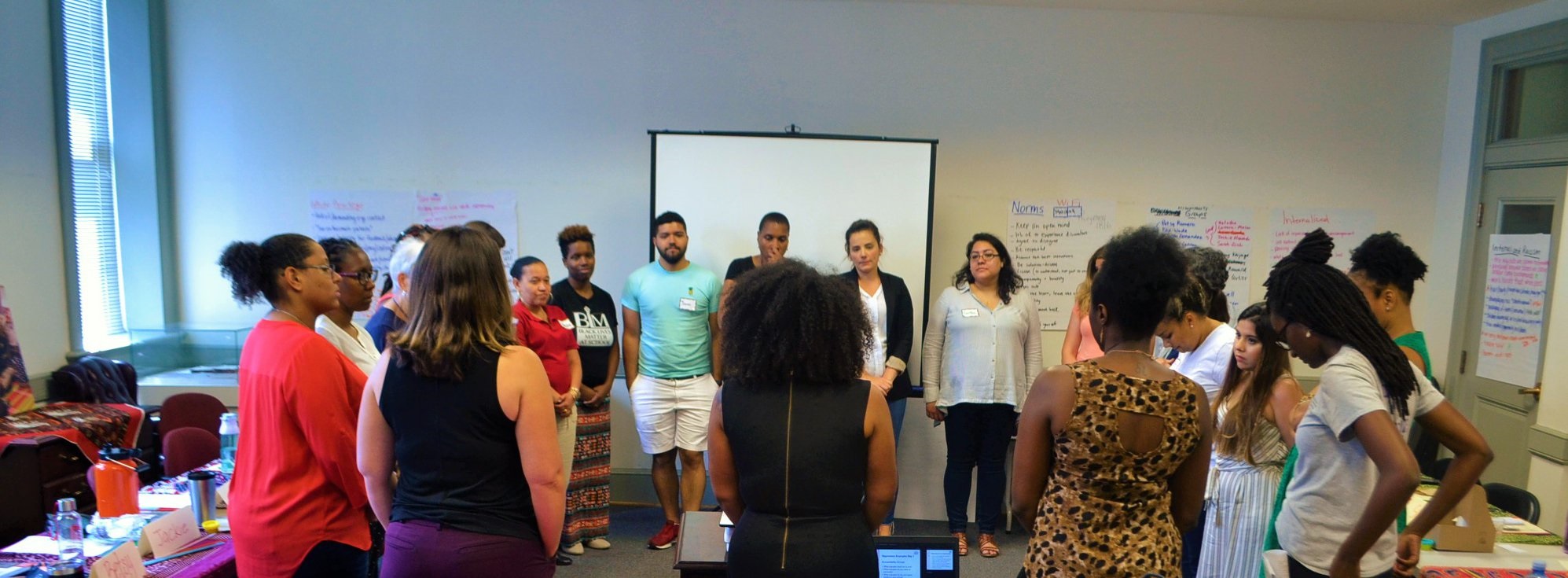EmpowerEd Testimony School Budget Bills Hearing
/Testimony of Scott Goldstein, Executive Director, EmpowerEd
School Budget Bills Hearing- DC Council
January 20, 2022
Good Afternoon Chairperson and Council Members. Thank you for the opportunity to testify
today on the Schools Full Budgeting Amendment Act and the Schools First in Budgeting
Amendment Act. We approach this conversation with two important guideposts- how do we
provide our schools the stability they need and how do we ensure equitable budgets that truly
provide each school community with what that specific community needs. Both of these bills are
aimed at the first objective, providing schools more stability, but do not address how to make
budgeting more equitable. I must say upfront the timing of this hearing provides a difficult
context. DCPS is currently undergoing a process to modify their longstanding budgetary
approach with a mixed formula approach that in theory will center equity- but for which we have
not yet seen simulations with actual schools. Without that context, it becomes difficult to judge
how these separate efforts would interplay with a new budget model and what the ultimate
results would be for school communities.
As basic tenets, we agree that school budgets should start, at least, with what they received in
the prior year to ensure that schools have predictability and stability- able to keep all staff who
are valuably contributing. We also agree that we should absolutely prioritize spending at the
school level over central office spending. We agree with Chairperson Mendelson’s stated
objective to end the yearly crisis in budgeting and provide schools more predictability. There are
several things in these bills, however, that warrant some concern and further study. In the more
prescriptive “Schools First” legislation- there is a distinction made between spending on central
administration, school support and local schools. It seems pretty clear based on past practice
that it will be fairly easy for central office to simply label a lot of traditional central office roles as
school support in order to continue to expand the size and scope of central. We should force
central office to make some hard choices about how to redirect supports towards schools- but
the mechanisms in this bill may not do that.
Our biggest concern is with the switch in budgeting schools in the first year based on actual
teacher salaries and not average salaries. First, the WTU contract would prohibit this, and
rightfully so because using average salaries is what protects from schools discriminating against
more experienced educators. Second, the Chairman has noted that under this new formula,
about half the school would have a larger base budget and half would have a lower one in the
first year it is in effect. They would then build from there. So I did a calculation based upon a
representative sample of schools in each ward to see how this change would possibly impact
schools in the first year. Many of our lowest income schools actually have the highest
percentage of teachers with over 10 years of experience. So in the first year, these schools,
which need the additional money, might get it. But the problem is that in all of the successive
years, these schools would have the largest incentive to turn over more experienced educators.
If you ensure they will have at least last year’s budget after year one but year one was based on
actual salaries- there’s a huge perverse incentive for principals and LSATs to consider that they
could, in many cases, replace one teacher with two. You may not find them likely to make that
decision, but we should not be creating an incentive for them to do something that could harm
the quality of teaching.
Finally, we must address equity. For many years our school budgets have fallen fall short of
adequacy. Yes, it’s a problem that schools have almost no time to receive, consider and petition
changes on the budget each year (and these bills don’t address that timeline), but it’s also a
problem that the formulas do not examine the needs of individual school communities. One
example is schools that have a programmatic theme- like dual language, STEM or global
studies. They are asked to do more, but not necessarily provided any additional funds for the
additional courses and programs DCPS advertises them for. This isn’t addressed in this bill, but
should be part of any budget reform conversation. We also aren’t creating any additional
funding streams here, or revising existing funding to target schools areas of needs. If OSSE
acts to follow up on the SBOE recommendations and creates a school dashboard instead of a
summative school rating, we will have tremendous potential to focus on each school’s areas of
strengths and unique challenges and target funding and resources accordingly. That should
also be part of a broader budget reform conversation.
In closing, we applaud the effort to provide schools more predictability in budgeting, but we must
have a fulsome conversation about how to provide both stability and equity in our school
budgeting process. For that, we should slow down and do this both well and comprehensively.

